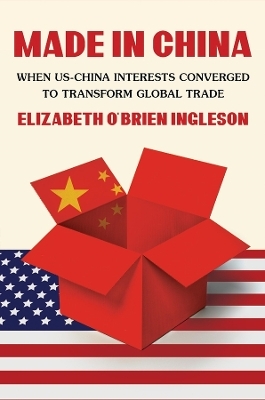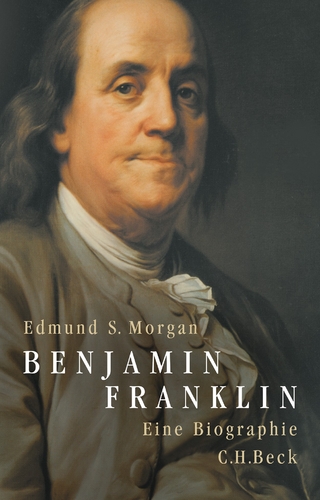
Made in China
When US-China Interests Converged to Transform Global Trade
Seiten
2024
Harvard University Press (Verlag)
978-0-674-25183-0 (ISBN)
Harvard University Press (Verlag)
978-0-674-25183-0 (ISBN)
Elizabeth Ingleson explores the roots of bilateral trade between the United States and China. Telling the story of the 1970s US activists and entrepreneurs who pressed for access to China’s vast labor market, Ingleson shows how not just Chinese reform but also US deindustrialization fueled a dramatic, unanticipated shift in global capitalism.
The surprising story of how Cold War foes found common cause in transforming China’s economy into a source of cheap labor, creating the economic interdependence that characterizes our world today.
For centuries, the vastness of the Chinese market tempted foreign companies in search of customers. But in the 1970s, when the United States and China ended two decades of Cold War isolation, China’s trade relations veered in a very different direction. Elizabeth Ingleson shows how the interests of US business and the Chinese state aligned to reframe the China market: the old dream of plentiful customers gave way to a new vision of low-cost workers by the hundreds of millions. In the process, the world’s largest communist state became an indispensable component of global capitalism.
Drawing on Chinese- and English-language sources, including previously unexplored corporate papers, Ingleson traces this transformation to the actions of Chinese policymakers, US diplomats, maverick entrepreneurs, Chinese American traders, and executives from major US corporations including Boeing, Westinghouse, J. C. Penney, and Chase Manhattan Bank. Long before Walmart and Apple came to China, businesspeople such as Veronica Yhap, Han Fanyu, Suzanne Reynolds, and David Rockefeller instigated a trade revolution with lasting consequences. And while China’s economic reorganization was essential to these connections, Ingleson also highlights an underappreciated but crucial element of the convergence: the US corporate push for deindustrialization and its embrace by politicians.
Reexamining two of the most significant transformations of the 1970s—US-China rapprochement and deindustrialization in the United States—Made in China takes bilateral trade back to its faltering, uncertain beginnings, identifying the tectonic shifts in diplomacy, labor, business, and politics in both countries that laid the foundations of today’s globalized economy.
The surprising story of how Cold War foes found common cause in transforming China’s economy into a source of cheap labor, creating the economic interdependence that characterizes our world today.
For centuries, the vastness of the Chinese market tempted foreign companies in search of customers. But in the 1970s, when the United States and China ended two decades of Cold War isolation, China’s trade relations veered in a very different direction. Elizabeth Ingleson shows how the interests of US business and the Chinese state aligned to reframe the China market: the old dream of plentiful customers gave way to a new vision of low-cost workers by the hundreds of millions. In the process, the world’s largest communist state became an indispensable component of global capitalism.
Drawing on Chinese- and English-language sources, including previously unexplored corporate papers, Ingleson traces this transformation to the actions of Chinese policymakers, US diplomats, maverick entrepreneurs, Chinese American traders, and executives from major US corporations including Boeing, Westinghouse, J. C. Penney, and Chase Manhattan Bank. Long before Walmart and Apple came to China, businesspeople such as Veronica Yhap, Han Fanyu, Suzanne Reynolds, and David Rockefeller instigated a trade revolution with lasting consequences. And while China’s economic reorganization was essential to these connections, Ingleson also highlights an underappreciated but crucial element of the convergence: the US corporate push for deindustrialization and its embrace by politicians.
Reexamining two of the most significant transformations of the 1970s—US-China rapprochement and deindustrialization in the United States—Made in China takes bilateral trade back to its faltering, uncertain beginnings, identifying the tectonic shifts in diplomacy, labor, business, and politics in both countries that laid the foundations of today’s globalized economy.
Elizabeth O’Brien Ingleson is Assistant Professor of International History at the London School of Economics. She earned her doctorate at the University of Sydney, and held fellowships at Yale University, the University of Virginia, and Southern Methodist University. She currently serves on the editorial board of the journal Cold War History.
| Erscheinungsdatum | 28.02.2024 |
|---|---|
| Zusatzinfo | 24 photos, 2 illus. |
| Verlagsort | Cambridge, Mass |
| Sprache | englisch |
| Maße | 156 x 235 mm |
| Gewicht | 634 g |
| Themenwelt | Geisteswissenschaften ► Geschichte ► Regional- / Ländergeschichte |
| Sozialwissenschaften ► Soziologie | |
| Wirtschaft ► Volkswirtschaftslehre ► Makroökonomie | |
| ISBN-10 | 0-674-25183-0 / 0674251830 |
| ISBN-13 | 978-0-674-25183-0 / 9780674251830 |
| Zustand | Neuware |
| Informationen gemäß Produktsicherheitsverordnung (GPSR) | |
| Haben Sie eine Frage zum Produkt? |
Mehr entdecken
aus dem Bereich
aus dem Bereich
Erinnerungen
Buch | Softcover (2024)
Pantheon (Verlag)
CHF 22,40
Universalgelehrter, Polarreisender, Entdecker
Buch | Hardcover (2024)
mareverlag
CHF 39,20


